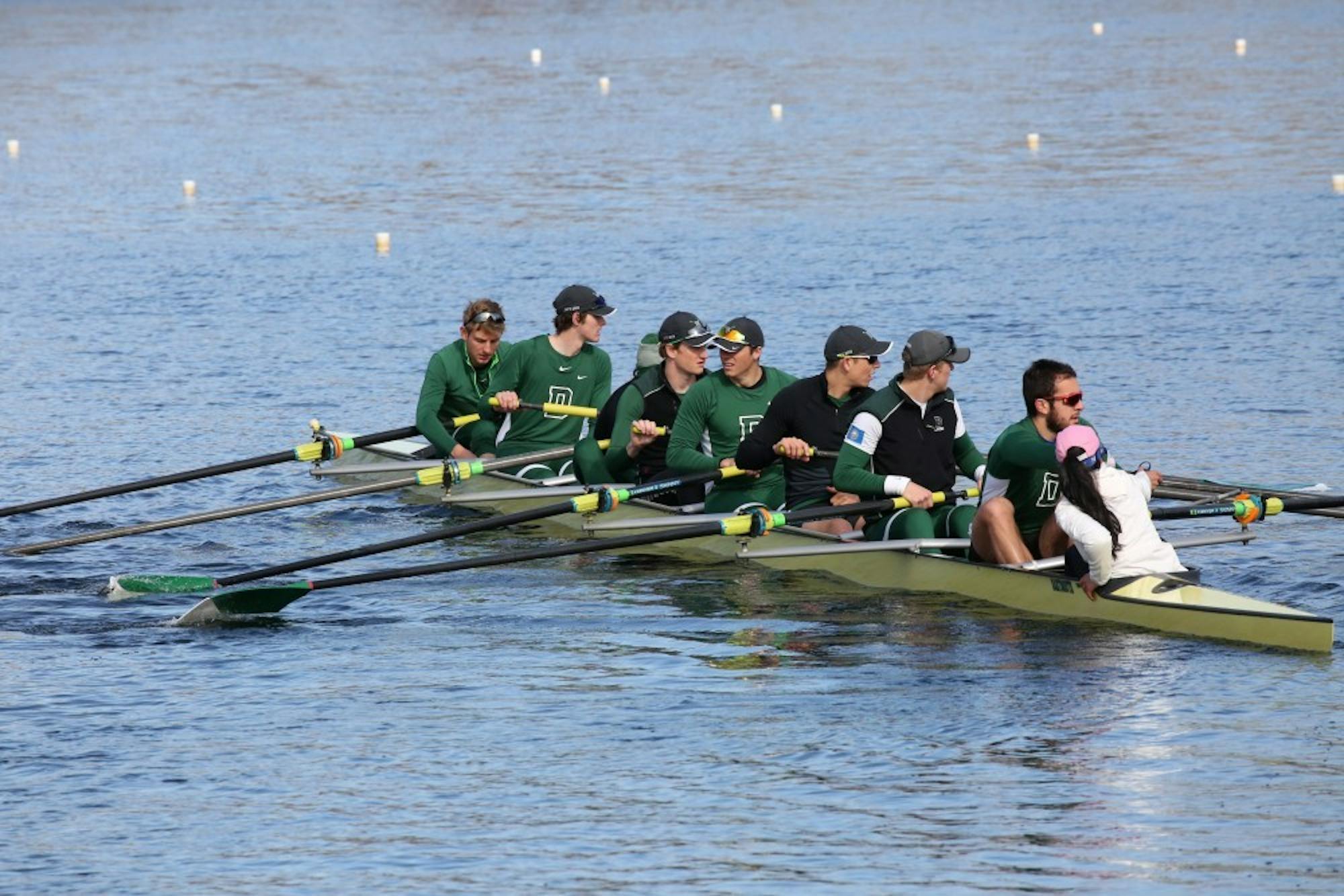Oliver Bub ’20, a former member of Dartmouth’s heavyweight rowing team, has continued his journey on the water — now in hopes of making the 2024 Paris USA Olympic Team. While his final collegiate season was cut short due to the COVID-19 pandemic, Bub was a strong performer for the Big Green throughout his collegiate career.
In his first year, Bub started off in the second varsity boat but moved up to varsity to finish off the season. During his sophomore year, he stayed in the varsity boat for the entire season. His time at Dartmouth was highlighted by his junior season, in which Dartmouth placed fifth overall in the Intercollegiate Rowing Association National Petite Final.
Bub’s zest for rowing continued past his Big Green career. Despite growing up on the east coast in Westport, Conn., he now resides in California where he trains with the California Rowing Club with the goal of competing for Team USA in the 2024 Olympic Games in Paris. In addition to training for the Olympics, he works as an analyst at Citibank. The Dartmouth sat down with Bub to discuss post-collegiate rowing and how his experience on the heavyweight team shaped his future.
Why did you want to embark on this journey? Why is it so important that you make the 2024 Olympic team?
OB: My parents both rowed, so I was always around the sport and, even though I started rowing for myself freshman year of high school, I always saw rowing as a vessel for me to chase my competitive desires. That being said, I would not say going to the Olympics is that important. I think as athletes and in life in general we tend to get caught up in the end goal or destination. We all want to accomplish something, but right now I’m just enjoying my journey and the day-to-day rowing because I really do love it. I am grateful to California Rowing Club, the Rogers Foundation, US Rowing and my coaches, Mike Teti and Skip Kielt, for setting up a system that allows me to continue to chase this dream, but to also earn a salary and progress in my career for when the rowing does end.
What does a typical day of training look like at the Oakland CRC?
OB: It boils down to two times a day, six days a week. I usually wake up at 5:30 a.m. because I don’t want to just roll out of bed onto the water. The boathouse is a two minute walk from my apartment, so after eating breakfast, I show up around 6:20 a.m. and warm up on the bike. The coaches show up around 6:30 a.m. and give us a few pointers and goals for the day and then we go out and row. A typical day is 20,000 kilometers of steady state — think a brisk jog. Then, I am back on land around 8:30 a.m. and head back home to get ready for work. I go to Citibank’s San Francisco office two times a week, so those days are more rushed. I work until I show up for the afternoon, on-your-own workout at around 5 p.m. Typically, that is an erg for about 40 minutes and then the stationary bike for 40 minutes. I’ll usually leave the office to work out and finish my work at home, but if the work is necessary to complete, I have started workouts before at 8 or 9 p.m.
What is it like balancing training and work all at once?
OB: My first year was really tough, especially since it was an Olympics year with Tokyo being pushed back. I was in the mix, but I was never truly confident in myself on making it. Even though I didn’t necessarily see myself making it, there was still an immense amount of pressure to perform every day while balancing work. You just don't fully understand what you are getting yourself into until you do it, which I found out my first year. But, you get better at it as with other major transitions in your life. After you throw yourself in there, you find out what works and what doesn’t and make adjustments accordingly, so things are going a lot better now since I know what to expect from my day-to-day life.
What is a lesson you learned as part of Dartmouth athletics that has helped you in your career pursuits post-grad?
OB: [Men’s rowing head coach] Wyatt [Allen] always said “rowing is a brutally simple sport.” A lot of people in rowing try to get really scientific about the nooks and crannies of finding boat speed, which has value. Yet, on the flip side we are really just pulling on an oar in water, so you don’t have to over complicate it.We did the really small things really well at Dartmouth. None of us were that physically gifted with humongous erg scores, but we showed up every day with a really good, ready-to-work attitude. This lesson of showing up with a good attitude can be brought to other aspects of your life. Colleagues will be drawn to you and you can get a lot out of just doing the little things well.
This interview has been edited and condensed for clarity and length.




